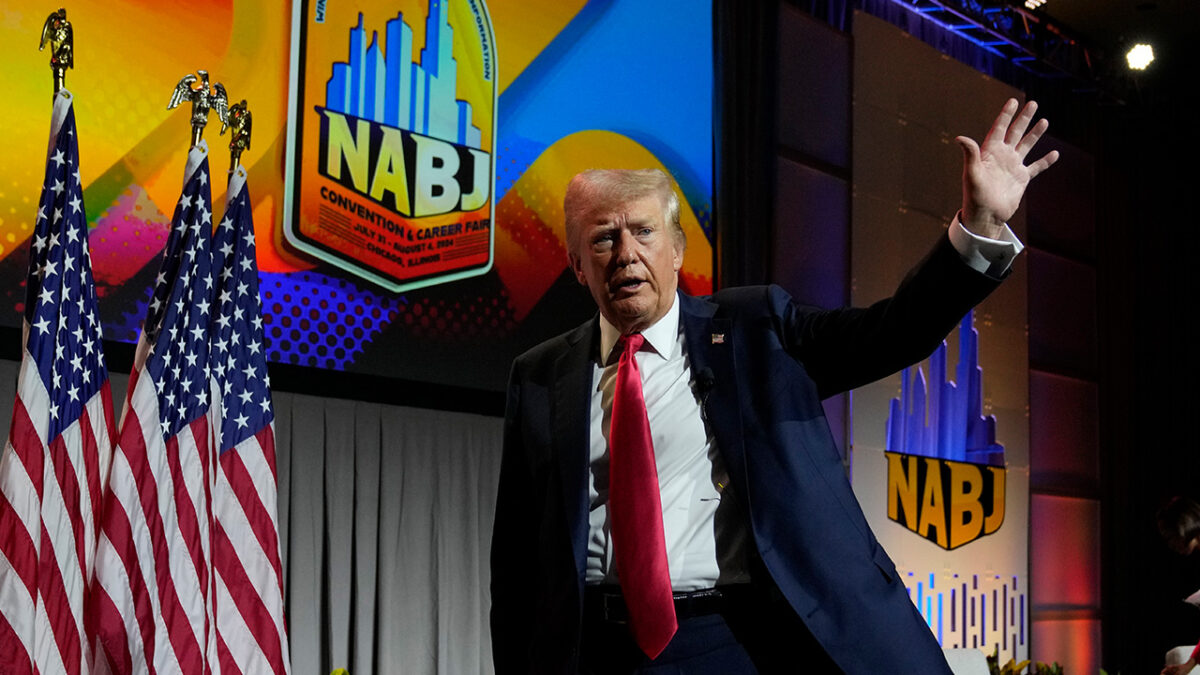Let's dive into what happened when former President Donald Trump found himself in the hot seat at the National Association of Black Journalists (NABJ) convention. Trump, never one to shy away from a confrontation, had a fiery exchange with ABC News’ Rachel Scott, and it quickly turned into a headline-grabbing moment.
It all started when Scott brought up Trump’s past comments about potentially pardoning the January 6th protesters. Now, this is a pretty controversial topic, especially considering the violent events that unfolded at the Capitol on that day. Scott didn't mince words, questioning Trump directly about whether those who assaulted police officers during the riots were "patriots" deserving of pardons.
But Trump, in true form, flipped the script. Instead of directly answering, he pivoted to a more recent event: the anti-Israel protests in Washington, D.C. These protests, according to Trump, were just as violent and destructive, with demonstrators defacing monuments and clashing with police. He used this comparison to highlight what he sees as a double standard in how different groups of protesters are treated.
Trump gives masterful response to a gotcha question about J6: "Let me bring it back to modern day, like about five days ago. We had a horrible attack on the Capitol. People spraying these incredible monuments with red paint that will never actually come off, especially on the… pic.twitter.com/HLOunJiI5Y
— TheBlaze (@theblaze) July 31, 2024
And when it comes to those January 6th protesters, Trump made it clear: if they’re innocent, he’d absolutely consider pardoning them. But Scott quickly pointed out that many of those involved have already been convicted, to which Trump replied that they were up against a "very tough system."
Trump didn’t stop there. He brought up the 2020 protests following George Floyd’s death, questioning why, in his view, those who caused damage in cities like Portland and Minneapolis didn’t face the same level of prosecution as the January 6th rioters. He seemed particularly incensed by what he perceives as an unequal application of justice.
One of the more poignant moments came when Trump mentioned Ashli Babbitt, the woman who was shot by a Capitol police officer during the January 6th attack. Trump contrasted her death with the fatalities that occurred during other protests, questioning why more wasn’t done to hold those protesters accountable.
The tension didn’t let up as the conversation turned to Trump's relationship with minorities. Scott wasted no time addressing what she called the “elephant in the room,” accusing Trump of various slights against minority groups, including dining with a "white supremacist" and attacking black journalists. Trump fired back, calling her approach "horrible" and criticizing ABC News as a "fake news network."
Trump was quick to defend his record, particularly his work on the Opportunity Zones program, which he claims has significantly benefited the black community. But the back-and-forth with Scott clearly left him feeling aggrieved, as he later commented on her rudeness and how she delivered her questions more like statements.

